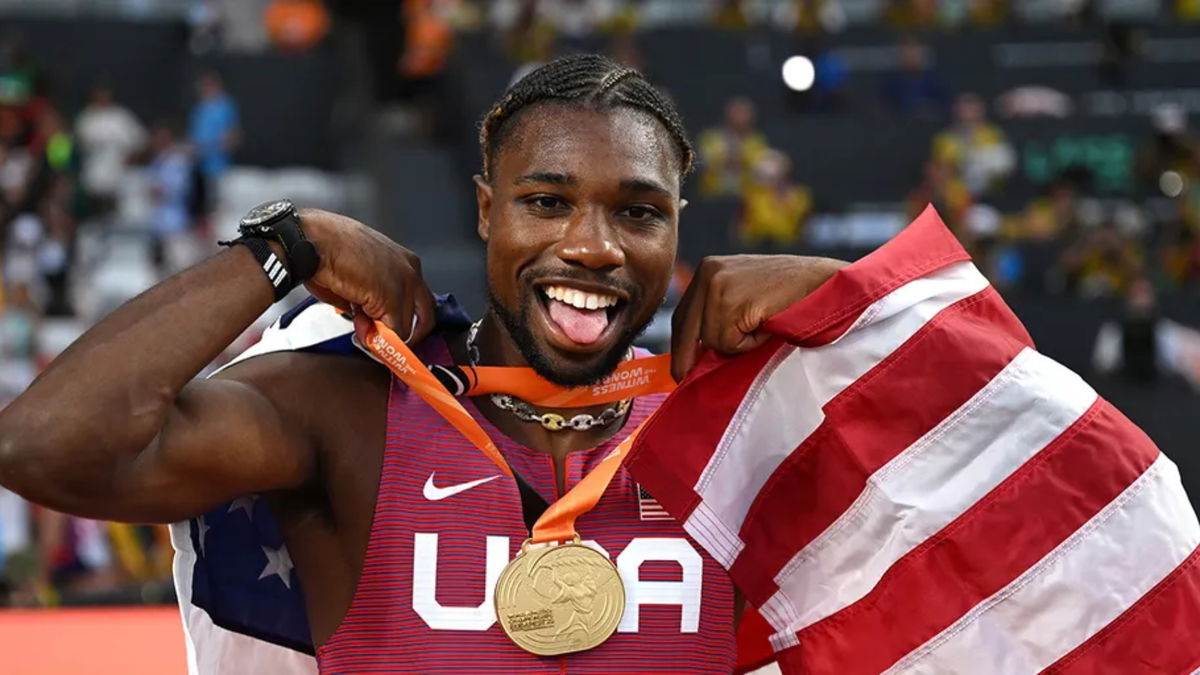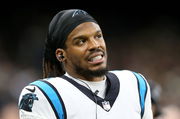

Over 70 thousand people at the Stade de France and around 30 million worldwide witnessed the exorbitant display of speed as Noah Lyles and Kishane Thompson engaged in a titanic tussle for the 100m gold. Noah Lyles won the race by five-thousandths of a second, but not before sending the crowd into a frenzy with a heart-stopping photo finish. Sydney McLaughlin-Levrone’s record-shattering performance in the women’s 400m hurdles and Letsile Tebogo’s dominant 200m gold run further electrified the whole track and field experience for the fans.
Watch What’s Trending Now!
The sport was sure to gain massive followers, with fans vying to witness their favorite sprinters shattering more records and adding more accolades to their careers. Noah Lyles, the 100m king of track and field, has now opened up about the soaring popularity of the sport. However, it has also come up with a concern that, if not addressed, will prevent fans from experiencing the winning moments of their favorite sprinters. Let’s know more about Noha Lyles’s thoughts and concerns!
ADVERTISEMENT
Noah Lyles is skeptical about broadcasting infrastructure in track and field
Noah Lyles was talking to Shannon Sharpe and Chad Johnson on their YouTube channel, Nightcap. He expressed his thoughts over the surging popularity of track and field following the Paris Olympics and raised his concerns about the broadcasting limitations that could severely restrict viewership. He thinks track and field sports are not ready to take on the popularity that is going to follow after the Olympics or the release of the docuseries Sprint, which showcases the behind-the-scenes lives of top sprinters as they prepare for their sports. “The hard part is that we as a sport are not ready for the popularity that is going to come. Everybody is going to say, ‘I want to be a track and field fan!’ ‘I want to follow Fred!’ ‘I want to follow Noah!’ ‘I want to follow Erriyon!’ Guess what? We don’t even have a place to go and tell them to watch the track meet,” he said.

Reuters
Paris 2024 Olympics – Athletics – Men’s 100m Final – Stade de France, Saint-Denis, France – August 04, 2024. Noah Lyles of United States celebrates after winning gold. REUTERS/Dylan Martinez
Further complicating the matter is the recent decision made by NBC not to broadcast the Diamond League meetings next season. Instead, the pay channel FloTrack will cover the diamond league. However, amidst the broadcasting chaos that might follow with the rapid expansion of the track fanbase, Sprint, the Netflix docuseries featuring America’s sprinting legends, continues to rope in more viewers.
ADVERTISEMENT
Sprint Docuseries continues its awe-inspiring concept with a renewed season
Sprint continued to mesmerize the track and field audience, giving a first-hand look into the lives of their beloved athletes. The docu-series, made in collaboration with Netflix and World Athletics, features some of the best sprinting talent from America. Called invigorating by rotten tomato critic Carla Renata, Sprint follows the daily routine of top sprinters like Noah Lyles, Shericka Jackson, Sha’Carri Richardson, and Marcell Jacobs as they navigate the whirlwind of physical and emotional challenges in their pursuit of success. It took the audience beyond the tracks, showcasing what it takes to forge world-class sprinters.
ADVERTISEMENT
The novel concept instantly struck a chord, with audiences soaring in popularity as well as viewership. Fans loved the unprecedented glimpse into the lives of the iconic sprinter, revealing the sacrifices and triumphs that define their world. Sprint garnered a massive 2.4 million views in its first week, quickly securing a spot in the top 10 worldwide. Now, it’s renewed for another season as well. The recent surge in the popularity of track and field following a record-shattering display of speed at the Paris Olympics, further reinforced by docuseries like Sprint, has fans lining up to experience more action on tracks. However, as Noah Lyles warned, a lack of a broadcasting blueprint might prevent a massive chunk of the audience from watching their favorite track and field stars surging past the finish line. What’s your take on this? Do tell us in the comment section.
Top Stories
Cam Newton Makes NFL Return Conditions Clear to 32 Teams as Panthers Legend Confirms Retirement Stance

Tom Brady Makes Career Announcement for Vegas as Pete Carroll Addresses Losing Raiders Locker Room

Scottie Scheffler Makes Critical Health Announcement After He Ended PGA Tour Hiatus

J. J. McCarthy Awaits Punishment From Vikings After Rejecting Kevin O’Connell’s Instructions

Tiger Woods & Co. Now Have to Think Twice Before Trash-Talking at TGL Following New Update

Lexi Thompson Branded ‘Self-Centered’ After Retirement Decision Led to Chaos & Confusion

ADVERTISEMENT
ADVERTISEMENT
ADVERTISEMENT

